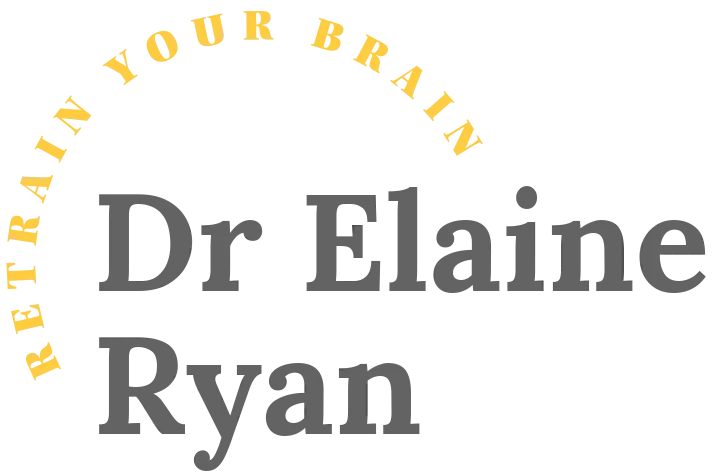About the author
Page last updated by Dr Elaine Ryan
Family therapy at it’s core looks at the dynamics within families and how everyone relates to each other. As a psychologist, I appreciate the tension that can exist within families. I decided to write this article for those of you wanting more information on family therapy and to give some practical insights into its benefits and processes. At the end of the article I shall give some pointers on how to find family therapists here in Ireland, but before that I shall start by explaining what it is.


What is Family Therapy?
Family therapy is sort of like untangling a big ball of wool that represents the family, teasing it apart to look at a thread that shows, for example,
- behaviours
- how everyone interacts and
- what relationships exist between members
The therapy is not about pointing fingers or apportioning blame; on the contrary, by unravelling all the dynamics , with the help of a good family therapists, Its goal is to nurture change and development by improving communication and resolving conflicts within the family unit. Originating in the mid-20th century, family therapy has evolved significantly, influenced by various psychological theories and practices.
Family therapy emerged in the 1950s and 1960s, influenced by the work of pioneers such as Murray Bowen, Salvador Minuchin, and Virginia Satir. These early therapists recognised that individual issues often reflected broader family dynamics and sought to treat these issues by addressing the family as a whole.
One prevalent misconception is that family therapy is only for families in crisis. In reality, family therapy can benefit any family, whether they are experiencing significant challenges or simply wish to improve their communication and relationships. Another myth is that family therapy involves blame; however, the focus is on understanding and changing dynamics rather than assigning fault.
The Core Concepts of Family Therapy
| Systems Theory | Communication | Roles | Structure |
|---|---|---|---|
| This theory is concerned with how families operate as interdependent systems, where each member affects and is affected by the others. I find this very helpful, as do clients and helps them see the bigger picture as changes in one part of the system can influence the whole. | Effective communication is crucial in family therapy, indeed it is usually the breakdown or style of communication that brings a family to see me in the clinic. Therapists work to improve these patterns, fostering clearer and more empathetic exchanges. | Each family member typically assumes specific roles and responsibilities, which can influence the family’s overall dynamic. Working with a good family therapist help you to identify and change dysfunctional patterns. | Boundaries are essential in all relationships and families are no different. Healthy boundaries are essential for functional family relationships. Boundaries define the level of closeness and autonomy between family members, and maintaining them helps prevent enmeshment or disengagement. |
Types of Family Therapy
Structural Family Therapy
Developed by Salvador Minuchin, structural family therapy focuses on restructuring the family system to improve interactions and resolve conflicts. This approach emphasises the importance of family hierarchy and boundaries.
Strategic Family Therapy
Strategic family therapy, influenced by Jay Haley and Milton Erickson, involves designing specific strategies to address family problems. This approach often includes setting tasks for family members to disrupt dysfunctional patterns.
Bowen Family Therapy
Bowen family therapy, created by Murray Bowen, explores multigenerational patterns and emotional processes within families. This approach aims to increase individual differentiation while improving family relationships.
Narrative Therapy
I’ve written about narrative therapy before, but in terms of individual therapy, but that might be worth a read if you have not already read it. Narrative therapy, developed by Michael White and David Epston, helps families reframe their problems by constructing new, empowering narratives. This approach encourages families to separate their identities from their issues.
Solution-Focused Therapy
Solution-focused therapy, pioneered by Steve de Shazer and Insoo Kim Berg, emphasises finding solutions rather than dwelling on problems. This brief therapy model focuses on the family’s strengths and future goals.
Other Relevant Approaches
Other approaches, such as cognitive-behavioural therapy (CBT) and psychodynamic therapy, can also be integrated into family therapy to address specific issues and dynamics.
Benefits of Family Therapy
Family therapy enhances communication skills, helping family members express their thoughts and feelings more effectively.
Therapy fosters stronger, more empathetic relationships by addressing conflicts and misunderstandings.
Families develop better problem-solving skills, enabling them to navigate challenges more effectively.
Therapy supports emotional well-being by addressing underlying issues and promoting healthier interactions.
Family therapy provides crucial support for individuals dealing with challenges such as addiction, mental health issues, or grief, within the context of their family relationships.
The Process
The process begins with an initial assessment to understand the family’s dynamics and identify their goals for therapy.
Therapy sessions typically involve all family members and utilise various techniques tailored to the family’s needs.
The therapist acts as a facilitator, helping to guide discussions, identify patterns, and suggest strategies for change.
Active participation from all family members is crucial for effective therapy, ensuring that everyone’s perspectives and contributions are valued.
Progress is regularly assessed to ensure that the therapy is meeting the family’s goals and to make any necessary adjustments.
Finding a Family Therapist in Ireland
Qualifications and Experience
When seeking a family therapist in Ireland, consider their qualifications, experience, and specialisations. Look for therapists who are registered with recognised professional bodies such as the Irish Association for Counselling and Psychotherapy (IACP) or the Family Therapy Association of Ireland (FTAI). These registrations ensure that the therapist meets the required standards of practice.
Therapeutic Approach
Understanding the therapist’s approach can help determine if it aligns with your family’s preferences and goals. In Ireland, family therapists may employ various approaches such as systemic, psychodynamic, or cognitive-behavioural methods. Discussing these approaches during initial consultations can help you find a suitable match.
Cost and Insurance Coverage
Cost is a practical consideration when seeking therapy. In Ireland, some therapists offer sliding scale fees based on income. Additionally, check if your health insurance covers family therapy sessions. Many policies include mental health benefits, but it’s important to confirm the specifics with your provider.
The Therapeutic Relationship
The relationship between the therapist and the family is crucial. It’s important to find a therapist with whom all family members feel comfortable and supported. Initial consultations can be useful for assessing this fit and ensuring that the therapist’s style is conducive to open and productive sessions.
Conclusion
Family therapy offers numerous benefits, from improved communication to stronger relationships and enhanced emotional well-being. If your family is facing challenges or simply wishes to strengthen their bonds, seeking the help of a qualified family therapist can be a transformative step. For those interested in exploring family therapy in Ireland, resources such as the Irish Association for Counselling and Psychotherapy (IACP) and the Family Therapy Association of Ireland (FTAI) can help you find a qualified professional in your area.
References
- Bowen, M. (1978). Family Therapy in Clinical Practice. Jason Aronson.
- Minuchin, S. (1974). Families and Family Therapy. Harvard University Press.
- White, M., & Epston, D. (1990). Narrative Means to Therapeutic Ends. Norton.
- de Shazer, S., & Berg, I. K. (1988). Clues: Investigating Solutions in Brief Therapy. Norton.
- Haley, J. (1976). Problem-Solving Therapy. Harper & Row.
By understanding and engaging in family therapy, families can foster healthier, more supportive relationships and navigate life’s challenges with resilience and cohesion.
